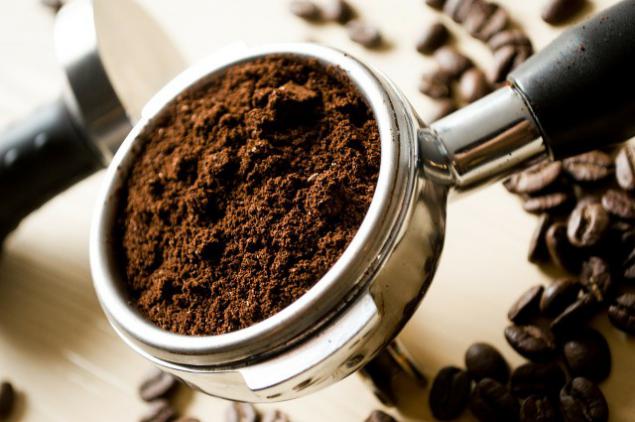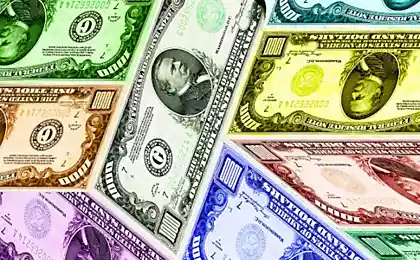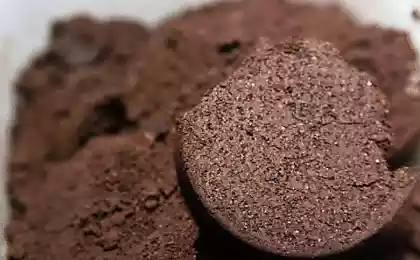Difficult napitokKofe much more mysterious than it seems? David Robson met a philosopher who thinks that way. He even tries to use this drink for the study of the human mind.
I seem to drink smoldering, almost extinct embers of a fire, smoky with a hint of the smell of creosote. But concentrating more, I notice the soft, viscous structure of the drink, which seems to mask the taste sharper tone. It's like a blade hidden in velvet. Never in my life I have not paid much attention cup of coffee. This delicious drink, I was told, to help find answers to some serious questions of life.
My guide in this journey - David Berman of Trinity College in Dublin. This philosopher, who spent many hours learning intricate inner workings of the mind and the senses. Now he turned his attention to his favorite drink, and answers that may be lurking at the bottom of the coffee cup. The result of this will be his new book - "The Philosophy of coffee tasting».
The way in which our various senses are mixed to generate consciousness, known in neuroscience as a "hard problem» h4> Armed with a strong US - and unbiased - I ask him to share some thoughts. This talk explores the values of self-analysis, as well as why people who drink coffee and tea - are quite different.
All of us to reflect on the world resort to the help of words, but Berman and others believe that this mechanism can greatly overshadow the main sensation, and prevent our understanding of all the intricacies of the mind.
This idea is not confined to the realm of philosophy. There is some evidence that our language can really change our perception. This phenomenon, called "top-down processing". And the way in which our various senses are mixed to generate consciousness, known in neuroscience as a "hard problem».
Therefore, a gradual Bending "inner layers" may give us a better understanding of themselves and their inner world.
"If you treat coffee as seriously as I - even though I do not think it is necessary - then the idea is to get to the direct experience" - explains Berman. - "When we drink coffee, we get caffeine, stimulates the mind and make it sharper. You are not in a state of mental lethargy. You are in a state of clarity and certainty ».

So I take a sip, and I try to taste.
Symphony of flavors, of course, seems brighter. Like the conductor suddenly he added to his volume of the orchestra. I also understand that I can consciously feel the taste notes of the individual - the smoke and feeling of silk on the tongue.
And it really is "hard problem" when I see how the brain constructs a variety of different «qualia», that is, cases of subjective experience that simply can not be fully put into words, and create on their basis of conscious experience.
While I was pondering this, Berman explains how his research contributed to the understanding of the drink. All types of coffee have something in common. This oily substance called kafeol. "At kafeol accounts for a very small part of the coffee bean, only 0, 5%," - he tells me. - "But if the substance in the drink is not, then it is not coffee».
And here at tea, he said, there is no "single entity". Tea - a wide variety of very different compositions, and there is no single, most important component.
"Chaizm" against "kofeizma" Berman compares the coffee and tea because these drinks illustrate two different philosophical approach. Tea - a lot of different flavor components that complement each other, he says, and recalls the eastern concept that says that all life on earth is interconnected.
«You think you feel the taste of coffee, but if you take self-examination, you will realize that you actually smell, who wrongly interpret as taste» h4> A coffee is on the contrary, one key ingredient - kafeol standing apart from the other flavors. So perhaps it's fitting metaphor for the Western philosophical approach, which always draw the line between body and spirit.
But a common ingredient in coffee, it turns out, can be deceiving. Taking a sip, I feel like a special flavor kafeoli tingling tongue, but it is - an illusion. To explain this, Berman recommends me to hold your nose and take another sip. This time I felt only a slight coffee flavor.
"This is one of the surprises," - says Berman. - "Do you think you feel the taste of coffee, but if you take self-examination, you will realize that you actually smell, who wrongly interpret as taste».
However, coffee connoisseurs will tell you that the central motif of the taste does not prevent experts in the preparation of coffee make a wide variety of variations around this central theme. Light prozharka grains better shows caffeic acid, making the drink is "brighter". Longer, "dark" prozharka leads to the formation of new coffee bean enzymes and proteins. These substances form a "body" of the beverage. They can make it more "heavy" more viscous, they also dull the acid shades.

Berman says that the pendulum has swung our taste for decades between sour and light, between dark and bitter. Early coffee was rich, "dark" roasting, and it lasted as long as there was no coffee, produced by industrial methods, which is dominated by sour taste. Then there was the second wave, which began with coffee chain Starbucks and Costa, who returned the coffee its bitter taste, and then the third wave of new manufacturers have approved more acidic and aromatic composition.
These "swing" between the two extremes can talk about a person's identity is much more than he thinks. Berman suspects that addiction to bitter, not sour coffee - is a fundamental intellectual "type", meaning that you, or in one camp or the other, and it will be very difficult to understand the point of view of others.
"At the coffee show can see a lot of ways in which people do not agree with each other on the fundamental issues," - he said.
My conversation with Berman, of course, gave me a lot of food (or drink) for thought. Even if you are in doubt about the benefits of coffee for philosophy, Berman might be able to convince you of the benefits of meditation and introspection. When it comes to the study of our inner experience and an open mind to our senses, we all useful from time to time to smell the coffee.
via www.bbc.com/future/story/20150517-what-coffee-says-about-your-mind?ocid=global_future_rss

























